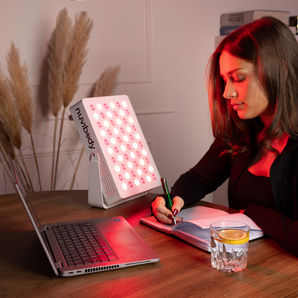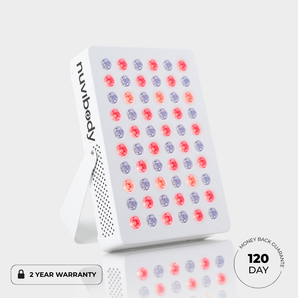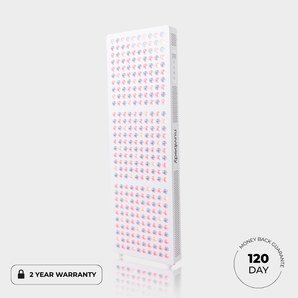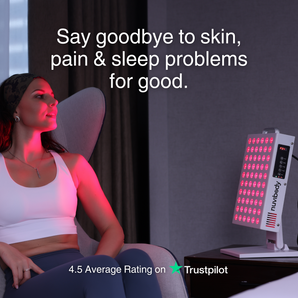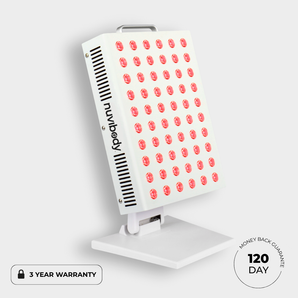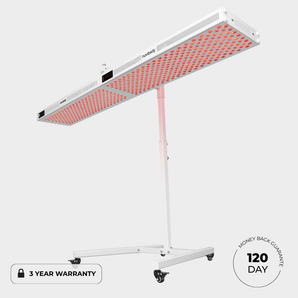Dopamine is often described as the "happiness hormone," but it's actually a neurotransmitter with much broader effects. It plays a role in motivation, reward, concentration, and even our ability to enjoy small everyday pleasures. A healthy dopamine balance can lead to increased energy, a more positive mood, and improved focus.
Many people turn to stimulants like caffeine or even medication to increase their dopamine levels, but there are also natural methods that are often more sustainable and healthier. How can you safely support your dopamine levels without becoming dependent on external stimuli?
The Basics: What Dopamine Does in Your Body
Dopamine acts as a signaling agent between nerve cells. It activates the reward system in your brain, keeping you motivated to complete tasks, set goals, and enjoy rewards. A lack of dopamine can lead to fatigue, decreased motivation, and sometimes even depression.
The good news: There are plenty of proven strategies to naturally support your dopamine.
Nutrition and dopamine production
Your body produces dopamine from the amino acid tyrosine, which you get from food. A diet with sufficient protein is therefore important. Foods that contribute to this include:
- Eggs and dairy products
- Nuts and seeds (especially almonds, walnuts, and pumpkin seeds)
- Legumes
- Chicken, turkey and fish
In addition, antioxidants from fruits and vegetables support the brain by protecting dopamine cells from damage. Think of berries, green leafy vegetables, and citrus fruits.
A balanced diet not only helps with dopamine, but also contributes to your overall well-being.
Exercise and dopamine release
Regular exercise is one of the most powerful natural ways to produce dopamine. Studies show that cardiovascular exercise (such as running, cycling, or swimming) in particular increases dopamine and other feel-good neurotransmitters like serotonin.
Strength training and yoga can also help. The key is consistency: exercising a few times a week is more effective than a single, intensive session.
Sleep and recovery
A good night's sleep is essential for dopamine regulation. Your dopamine stores are depleted during the day and are restored during sleep . Too little or poor sleep can reduce dopamine sensitivity, which directly impacts your energy and motivation.

A regular sleep schedule, avoiding screens late at night, and a dark, quiet bedroom all contribute to better sleep and a healthier dopamine system.
Sunlight and light therapy
Exposure to natural light stimulates dopamine production in the brain. This is one of the reasons why you often feel better on sunny days. This can be more difficult during the winter months or when there's insufficient daylight.
This is where technology can help. Red light therapy , such as that offered by Nuvibody, supports energy metabolism at the cellular level and can contribute to improved energy levels and mood. The beauty is that you can easily integrate this into your daily routine without relying on stimulants.

Want to experience this for yourself? Nuvibody offers high-quality red light therapy devices with a 120-day return guarantee and a 3-year warranty.
Mindfulness and meditation
Stress can seriously disrupt dopamine balance. Meditation, breathing exercises, and mindfulness can help lower stress levels while regulating your dopamine system.
Research shows that regular meditation can increase activity in brain regions related to motivation and reward ( source ). This not only supports your mood but also helps you better cope with daily challenges.

Music and creativity
Listening to your favorite music increases dopamine production almost immediately. The same is true for creative activities like painting, writing, or dancing. These kinds of activities activate the reward system and provide a natural dopamine surge, without the need for external stimulants.
Social connections
People are social creatures, and positive interactions have a direct impact on dopamine. Spending time with friends or family, laughing, or even a good conversation can reward your brain with a dopamine boost.
Small habits, big impact
There's no need to overhaul your entire life. Small daily habits can make a big difference:
- Start your day with a short walk in the morning sun
- Add protein-rich foods to your breakfast
- Take a few minutes each day for breathing exercises or meditation
- Schedule regular exercise sessions
- Incorporate red light therapy into your routine a few times a week
By being consistent, you'll slowly build a healthier dopamine balance that supports your mood, focus, and energy.
Natural dopamine boost without addiction
Dopamine is crucial for your energy, motivation, and well-being. While stimulants often seem like a quick fix, increasing your dopamine naturally is much more sustainable and healthier.
A combination of healthy nutrition, exercise, sleep , healthy light exposure, and stress reduction forms the foundation. By supplementing this with modern technology like red light therapy from Nuvibody, you can provide your body with additional support.
The result: a naturally increased dopamine balance that helps you get the most out of every day. Want to experience this for yourself? Try a Nuvibody red light therapy device risk-free for 120 days and discover the difference.
Frequently asked questions and answers
1. How do I know if my dopamine levels are too low?
A dopamine deficiency can manifest as fatigue, low motivation, a depressed mood, or difficulty experiencing pleasure. It can also be accompanied by difficulty concentrating or cravings for sugar or caffeine. Only a doctor can provide definitive answers through a medical evaluation, but these signs could indicate that your dopamine system is out of balance.
2. Can I measure dopamine with a blood test?
Dopamine is primarily produced and used in the brain, meaning a standard blood test often reveals little about actual brain activity. Scientists typically measure dopamine with specialized scans (such as PET scans), but these aren't intended for everyday use. For most people, it's better to look at symptoms and lifestyle.
3. How quickly will I notice results if I adjust my lifestyle to increase dopamine?
Some effects are noticeable quite quickly, such as an improved mood after exercising or listening to music. Other changes, such as better sleep or regular meditation, often take weeks to have a truly noticeable effect. Consistency is more important than speed here.
4. Is there a difference between dopamine and serotonin?
Yes. Dopamine is primarily associated with motivation and reward, while serotonin is more about mood, satisfaction, and calmness. Both neurotransmitters work together and are essential for healthy mental balance.
5. Can red light therapy really affect my dopamine?
Indirectly, yes. Red light therapy stimulates the energy factories of your cells (mitochondria), allowing your body to function more efficiently. This can lead to increased energy, improved mood, and indirectly, a healthier neurotransmitter balance, including dopamine. That's why some people use red light therapy as a supplement to lifestyle habits that support dopamine.
6. Are supplements a good way to increase dopamine?
Certain supplements like L-tyrosine (a precursor to dopamine) or omega-3 fatty acids can be helpful. However, it's wise to first get your basics (nutrition, sleep, exercise, and stress management) in order. Supplements aren't a replacement, but rather a complement.




